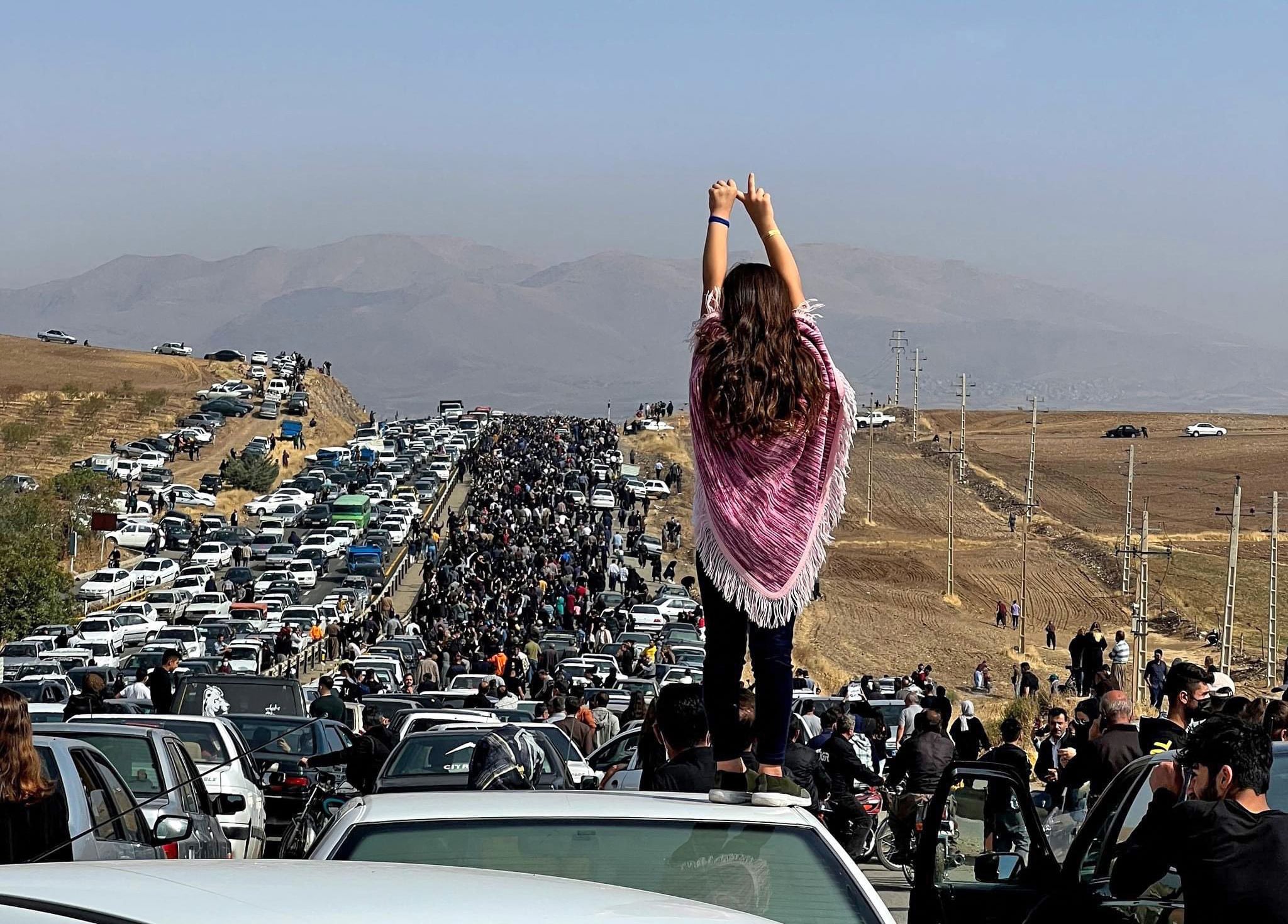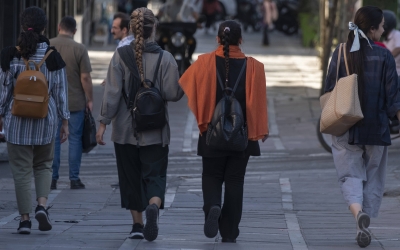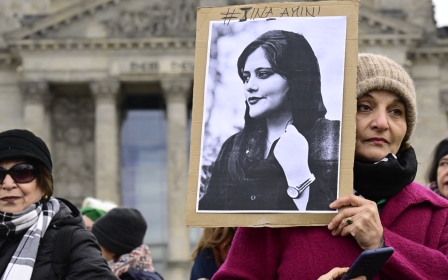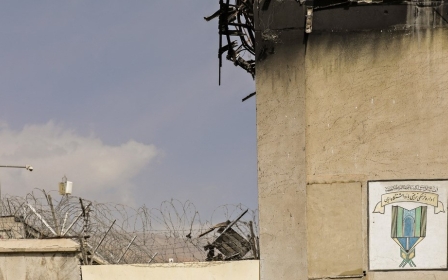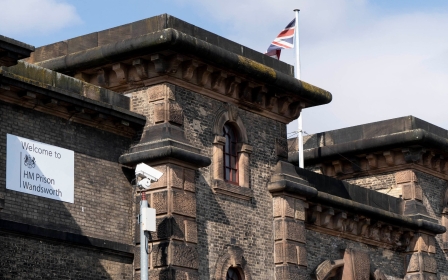Mahsa Amini: A year on, wounded protesters view future with hope and dread
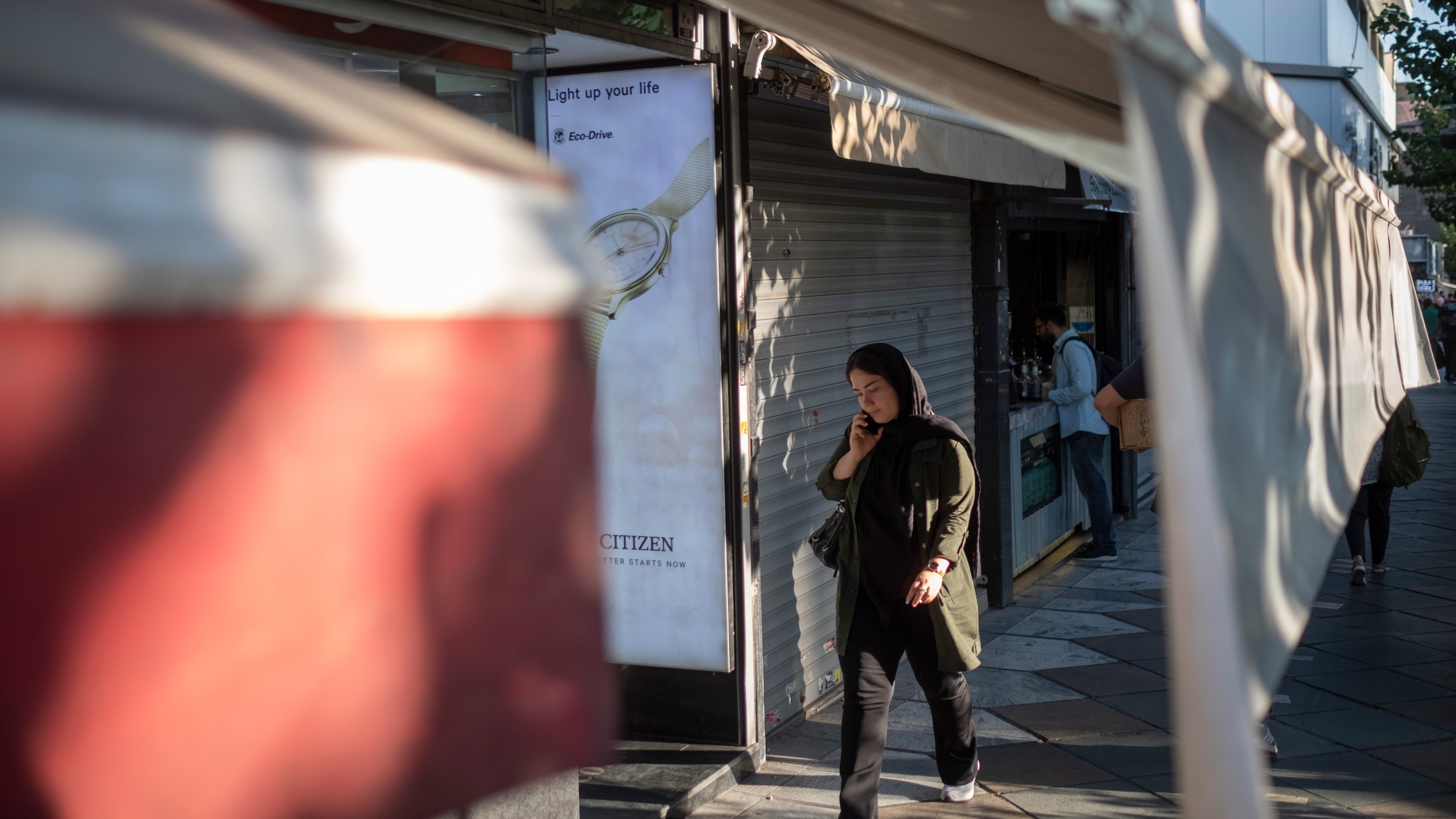
Incensed by the death of Mahsa Amini in police custody, Behzad* took to the streets in Tehran last year believing he could make a real change.
He joined thousands of people, in demonstrations that rocked the country for months, presenting one of the most challenging opposition movements for Iran's government since the 1979 Islamic Revolution.
But soon after, relentless repression followed. Assaults, mass arrests, police brutality, threats and executions were all deployed by the government to quash the protests.
More than 500 people were killed over the course of the demonstrations, while tens of thousands have been arrested. Many are still living with the physical and mental scars they endured at the hands of the security services.
Behzad was no different. During one of the protests, the 24-year-old was struck in the eye by a shotgun blast, an injury that has haunted him since.
New MEE newsletter: Jerusalem Dispatch
Sign up to get the latest insights and analysis on Israel-Palestine, alongside Turkey Unpacked and other MEE newsletters
"After that, I faced many problems with treatment. I was constantly threatened by the security agencies not to talk about my situation and not to talk to foreign media," he told Middle East Eye.
"They threatened me that if I raised my voice, they would blind my right eye as well as my left eye."
Ahead of Saturday's anniversary of Amini's death, authorities are once again on high alert. But for people like Behzad, who still bear the scars of the unrest, the day is viewed with a degree of trepidation.
His experience with the police has dampened the enthusiasm he initially felt for the movement. The pushback from the security services was so severe that he sees little hope of change.
"I don't think protests like last year will be repeated in Iran. I and other young Iranians went to the streets last year to change this awful situation and tell the regime officials that we don't want them," he said.
"But we lost and they won."
Bracing for crackdown
Authorities under President Ebrahim Raisi have been keen to stress that there would be no tolerance for actions to mark the year since Amini's death.
Amini, 22, died while in the custody of the "morality police" who detained her on 16 September last year for allegedly wearing her headscarf "improperly". The controversial force was accused of causing her death, but authorities say she died from pre-existing health issues - a claim her family disputes.
Speaking in a television interview on Tuesday, Raisi warned that "those who intend to abuse Mahsa Amini's name under this pretext, to be an agent of foreigners, to create this instability in the country, we know what will happen to them".
Individuals behind at least five social media accounts were arrested last week for allegedly "organising riots". The pages were also shut down.
Outside Iran, many in the diaspora plan protests to mark the occasion, while rights groups and foreign governments have highlighted the ongoing repression of protesters and women, and issued condemnations of the Islamic Republic.
'They who are safe outside of Iran can't even unite with each other; how do they want to save us from the devils of the Islamic Republic?'
- Mina
But the suffering many protesters endured has made them wary of taking to the streets again.
Mina was arrested during protests in Mashhad and was imprisoned for three months. During that time she suffered sexual abuse and repeated threats of rape.
"Three months that will be my nightmare for the rest of my life," the 21-year-old told MEE.
She has little time for the platitudes and "support" of the international community and foreign opposition, whom she described as "selfish and ineffective".
"They who are safe outside of Iran can't even unite with each other; how do they want to save us from the devils of the Islamic Republic? We were naive to trust them," she said.
Kaveh is another who suffered at the hands of the authorities.
The 26-year-old from Tehran was severely beaten by police while demonstrating. Upon hearing rumours that many wounded protesters who sought help in hospitals were later arrested, he avoided getting treatment.
Though a friend managed to arrange for a doctor and nurse to see him at home, he was unable to fully recover and still complains of balance issues. The ordeal has not left him optimistic and he does not plan to take part in demonstrations this year.
"There is no national will and determination to change the government - these scattered protests will not do anything until everyone wants to change," Kaveh said.
Regime taking its 'last breaths'
Publicly announced plans for demonstrations in Iran have been few and far between.
But most observers expect to see some activity in the country's Kurdistan province, at the very least.
According to IranWire, Amini's hometown of Saqqez has become swamped with security vehicles and personnel. Her parents' house is reportedly being heavily monitored, with local residents saying security forces have been stationed every few metres along their street.
A number of Amini's relatives, including her uncle, have been detained in recent weeks.
Despite the pressure, a commemoration of Amini at her gravesite in Saqqez is still scheduled to go ahead on Saturday. Whether it will be the catalyst for further demonstrations remains to be seen.
Unlike other protesters MEE spoke to, Sanaz, a 17-year-old student from Kurdistan, said she was still optimistic about the anti-government movement in Iran.
Originally uninterested in politics, Sanaz had been walking through the main square of her city - which she did not identify, for safety purposes - last year while anti-government protests were ongoing when several stray bullets hit the right side of her face.
She spent several days in hospital and eventually lost hearing in her right ear.
Despite this, she said the incident affected her, as "one of the people who paid a price to achieve freedom".
"As a result of participating in some virtual meetings and activities, I have been interrogated several times - but I will not stop fighting," she said.
"It is hoped that the flame of struggle will intensify again on the anniversary of Mahsa Amini's death and bring people to the streets once again. Last year's protests showed that this regime is taking its last breaths."
'We have no one'
In the wake of the killing of protesters, a number of foreign governments, including the US and UK, have imposed fresh sanctions on Iran. At the same time, there have been attempts by opposition forces to organise a unified front against the Islamic Republic.
One such high-profile group, the Alliance for Democracy and Freedom, was formed by a group of opposition figures in February but quickly fell apart two months later, over an alleged lack of democracy within the organisation.
The question of sanctions is one that has been hotly debated among the Iranian diaspora and foreign policy analysts. Some have argued that sanctions are an effective way of pressuring the Iranian government and targeting specific officials, while others suggest that they amount to collective punishment and serve to undermine the capability of the anti-government movement.
"Sanctions are not effective, whether sanctions on individuals and institutions from other countries or international sanctions that affect people's lives," suggested Kaveh.
"The dictatorship ruling Iran is too strong to decide to give in to the demands of a part of the people of his country with measures such as threats and sanctions from the West."
Mina said she didn't know who to believe when it came to sanctions - just that she and others in the anti-government movement felt abandoned.
"The opposition says that if there were no sanctions, the Islamic Republic would have given money to Hezbollah and the Houthis, but they, like the Islamic Republic, have lied so much that I don't know whether to believe their words or not," she said. "I only know that the sanctions have destroyed our lives, like the inefficiency of the Islamic Republic.
"We are miserable and have no one."
*First names have been used to protect identities
This article is available in French on Middle East Eye French edition.
Middle East Eye delivers independent and unrivalled coverage and analysis of the Middle East, North Africa and beyond. To learn more about republishing this content and the associated fees, please fill out this form. More about MEE can be found here.


